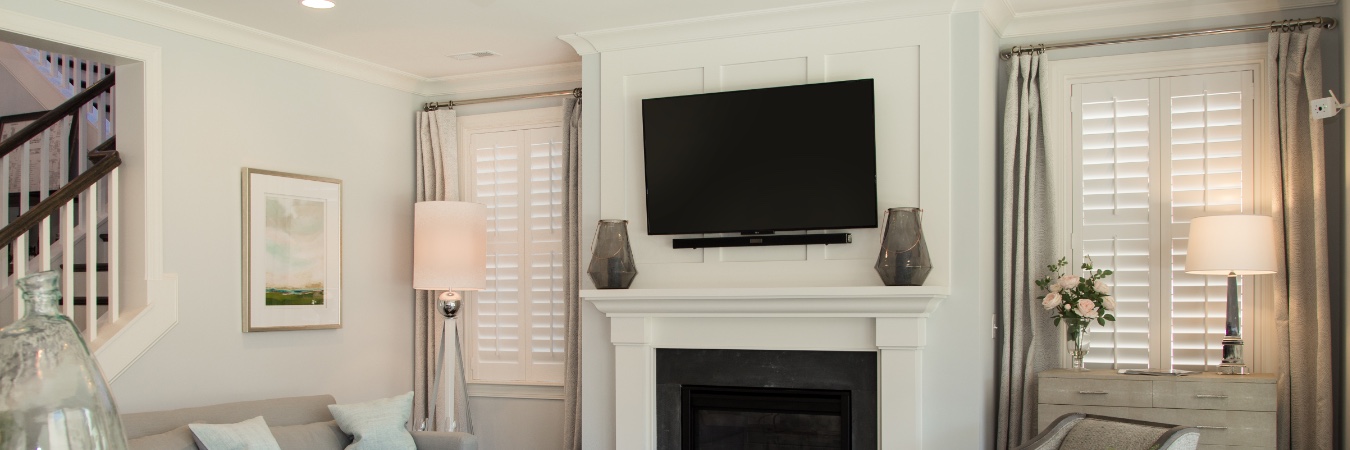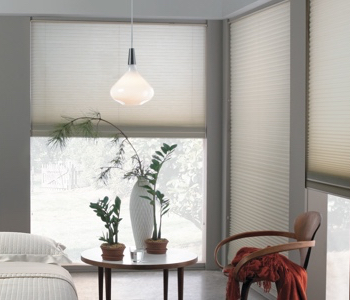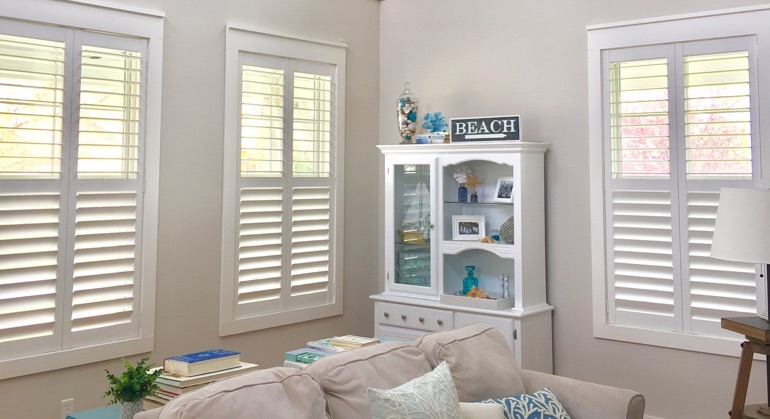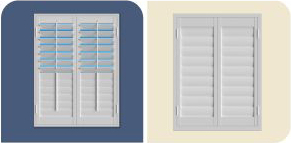
Shutters and R-Values: Comparing Energy-Efficient Window Treatments
We make a big deal about energy-efficient window treatments. But that’s because we have the hard numbers to back it up. With the help of some outside research, we’ve been able to directly compare the energy efficiency of the most common window coverings in Dallas, from drapes to blinds to shutters.
What Is R-Value And Why Is It Important For Window Treatments?
Everything in your house that insulates, from the roof to your window treatments, has an R-value. That number tells you how effective it is at stopping thermal energy from going through it. A larger r-value means a more effective insulator.

Why does the R-value of a window covering matter? Well, a more energy efficient window treatment makes it easier to keep your house at a comfortable temperature. Whether you want to keep the heat inside during the winter or keep your home cool in summer, you need good insulation. That’s especially necessary for your windows, because they’re a big culprit for energy loss in your home.
Window Treatment R-value Comparison Chart
Every window treatment is not made equal, at least not when it comes to energy efficiency. Though there can be some difference based on the material and thickness between different vendors and makes, this is what you’re likely to find when comparing window treatments.
| Window Treatment | Typical R-Value |
| No window treatment | 0.75-1 |
| Blinds | 1.5-2 |
| Pleated shades | 2.5 |
| Drapes | 2-3 |
| Wood Shutters | 3-4 |
| Cellular shades | 4.5 |
| >6 |
R-value averages sourced from Energy.gov and HouseLogic.
A quick look at the table tells you a number of things. The first is the fact that some window treatments offer almost no benefit at all (ahem, blinds), whereas others are energy-efficient beasts. That difference in R-value might mean a difference of several degrees – enough to make an impact in whether you dial up your AC and spend more money.
The second is that what the window treatment is made out of can have a big impact. Cellular shades, which are made with several insulating layers designed to trap heat, can put a stop to energy flow much better than pleated shades.

The same way, Polywood® plantation shutters, built from a solid-body faux wood compound, can keep out heat a to a much greater degree than wood shutters. That’s because natural wood can be permeable, with random knots and holes that let heat flow through them easily. Polywood shutters, combined with strict weatherstripping, make a solid seal on your window when closed, which is why they have that best in class r-value of 6 and up.
Add More Value To Your Home
The data doesn’t lie. Your window coverings play a big role in how comfortable your space can be. Think your home could be a little more comfortable? We’ll help. Have a chat with the team at Sunburst Shutters Dallas by calling 214-301-5066, or fill out our free estimate request form below.


